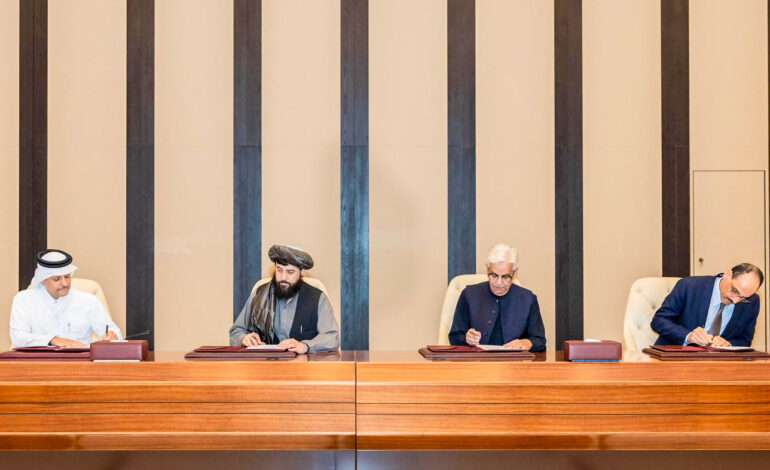
Istanbul talks between Afghanistan and Pakistan end without breakthrough amid deepening mistrust
The latest round of Pakistan-Afghanistan talks in Istanbul has ended without any breakthrough, with mediators citing deep differences over security concerns and priorities, according to local media reports.
The three-day dialogue, aimed at easing cross-border tensions, failed to produce an agreement despite mediation efforts by Turkey and Qatar. Both delegations reportedly held firm to their respective positions, leaving mediators frustrated by the lack of compromise, Khaama Press reported, citing Geo News.
Diplomatic sources said that Pakistan demanded decisive action against the Tehreek-e-Taliban Pakistan (TTP) and called for an end to the group’s use of Afghan territory as a safe haven. Islamabad views the TTP insurgency as a direct national security threat, and officials warned that the absence of cooperation could worsen the situation along the Durand Line.
Following a series of border clashes, Pakistan’s Defence Minister Khawaja Asif reiterated that Islamabad would continue targeted military actions inside Afghanistan if TTP attacks persisted. During the Istanbul talks, Pakistan also proposed establishing a third-party oversight mechanism, co-chaired by Turkey and Qatar, to monitor compliance and verify counterterrorism commitments.
Analysts say the failure of the Istanbul dialogue underscores growing mistrust and deteriorating ties between Kabul and Islamabad. The stalemate, they warn, could fuel cross-border militancy and further destabilize both countries.
This was the second round of peace negotiations between the two neighbors, following earlier discussions in Doha on October 18–19. The talks were part of ongoing regional efforts to address terrorism, border security, and refugee issues, but progress has been minimal.
Relations have become increasingly strained in recent months, with frequent border clashes and mutual accusations of harboring militants. Pakistan viewed Afghan Foreign Minister Amir Khan Muttaqi’s recent visit to India as a provocation, coinciding with drone attacks in Kabul.
Adding to tensions, Afghanistan has announced plans to build dams on the Kunar River, while Islamabad continues to reel from India’s decision to suspend the Indus Water Treaty following a terror attack in Pahalgam earlier this year.
Observers warn that without trust-building measures, Afghanistan–Pakistan relations risk sliding into prolonged confrontation, further undermining regional stability.